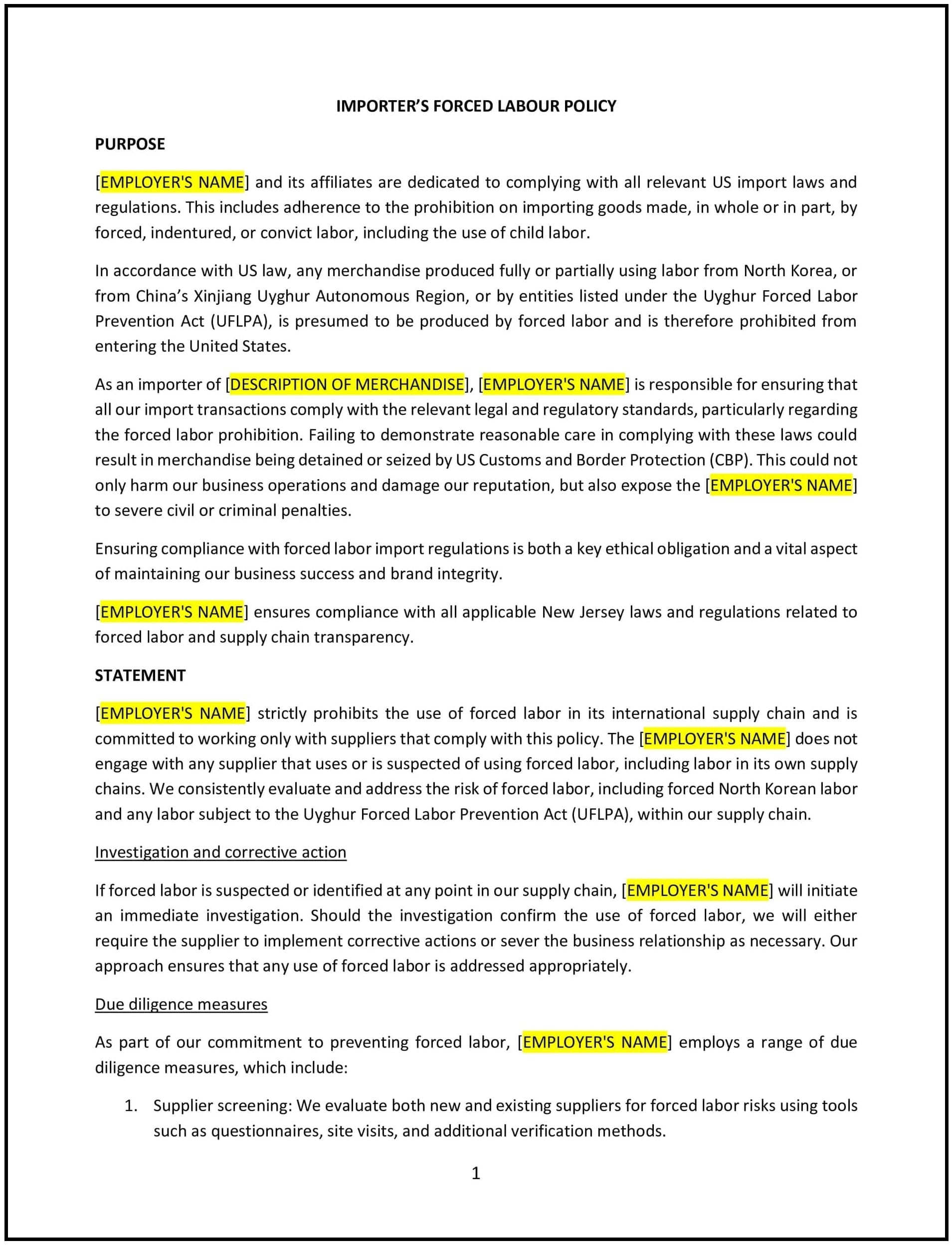Importer’s forced labour policy (New Jersey): Free template
Got contracts to review? While you're here for policies, let Cobrief make contract review effortless—start your free review now.

Customize this template for free
Importer’s forced labour policy (New Jersey)
An importer’s forced labour policy helps New Jersey businesses establish ethical sourcing practices by preventing the use of forced labor in supply chains. This policy outlines expectations for suppliers, due diligence processes, reporting mechanisms, and corrective actions if forced labor is identified. It also sets guidelines for supplier audits and responsible sourcing commitments.
By adopting this policy, businesses in New Jersey can reduce supply chain risks, uphold ethical labor standards, and align with international trade expectations.
How to use this importer’s forced labour policy (New Jersey)
- Define forced labour expectations: Establish the business’s commitment to sourcing materials and products free from forced or coerced labor.
- Conduct supplier due diligence: Require suppliers to provide documentation verifying their labor practices and working conditions.
- Implement audit and monitoring procedures: Conduct regular audits of suppliers and manufacturers to assess compliance with ethical labor standards.
- Require contractual commitments: Include forced labor prohibitions in supplier agreements and contracts.
- Provide reporting mechanisms: Allow employees, suppliers, and stakeholders to report concerns about forced labor through confidential channels.
- Set corrective action plans: Define steps for addressing violations, including remediation efforts or termination of supplier contracts.
- Train employees and suppliers: Offer training on recognizing forced labor risks and ensuring ethical sourcing practices.
- Review and update: Regularly assess the policy to align with evolving supply chain regulations and industry best practices.
Benefits of using this importer’s forced labour policy (New Jersey)
This policy provides several benefits for New Jersey businesses:
- Reduces supply chain risks: Helps prevent reputational and legal consequences associated with forced labor.
- Strengthens ethical sourcing: Reinforces responsible business practices and supplier accountability.
- Enhances market credibility: Demonstrates a commitment to fair labor practices and corporate social responsibility.
- Protects business partnerships: Ensures compliance with trade requirements and investor expectations.
- Supports transparency: Provides clear guidelines for ethical sourcing and labor monitoring.
Tips for using this importer’s forced labour policy (New Jersey)
- Communicate the policy clearly: Ensure suppliers and employees understand expectations and reporting procedures.
- Partner with ethical suppliers: Conduct thorough vetting of suppliers before entering business agreements.
- Establish monitoring systems: Use third-party audits, certifications, and supply chain assessments to track compliance.
- Encourage supplier collaboration: Work with suppliers to improve labor conditions and implement corrective actions.
- Review the policy regularly: Update the policy based on supply chain developments, legal changes, and stakeholder feedback.